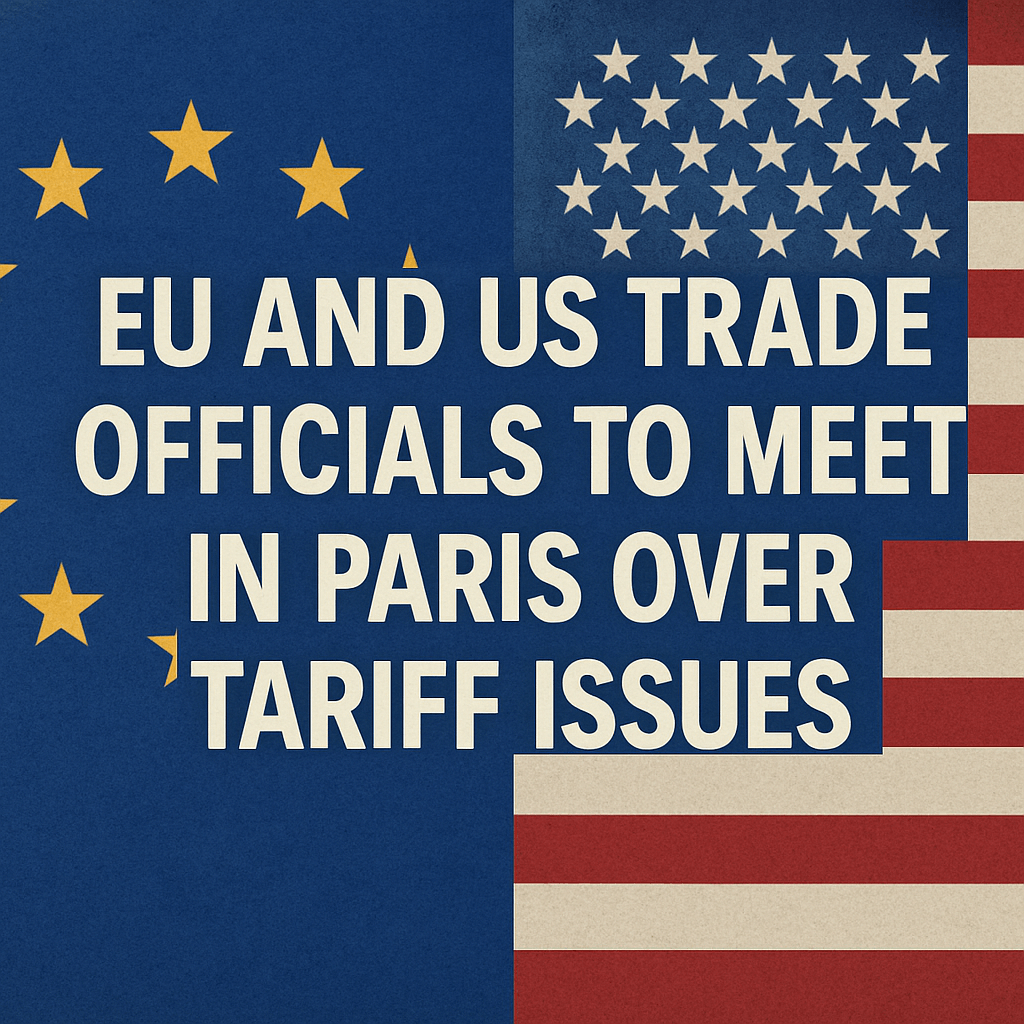EU and US Trade Officials to Meet in Paris Over Tariff Issues

This upcoming meeting between the EU trade chief and the US counterpart underscores the increasing complexities of transatlantic trade relations. Tariff tensions have been a significant concern in recent years, with both sides grappling with the implications of trade policy on wider geopolitical issues.
Poland’s Political Shift: A Crossroads for Trade and EU Relations
In a notable politcal shift, Karol Nawrocki has assumed the presidency in Poland, impacting not only domestic politics but also EU dynamics at large. While Poland’s president traditionally does not hold the same executive power as their French counterpart, Nawrocki’s victory emphasizes a significant ideological divide within Poland. His election energizes the right and raises critical questions about the future of Poland’s role in the EU, particularly regarding trade and economic policy.
Analyzing the Implications of Tusk’s Political Setback
The election result marks a substantial setback for Donald Tusk, whose liberal government is now under increasing scrutiny. Analysts contend that the defeat of Rafał Trzaskowski, once a strong pro-European candidate, signals a broader rejection of Tusk’s centrist policies rather than an outright endorsement of Nawrocki. Immediate calls for Tusk’s resignation, though unlikely, indicate a shifting political landscape that could provoke internal upheaval within the Civic Platform party.
- Ministerial Changes: High-profile resignations may occur, affecting key ministries, including Justice.
- Emerging Leadership: Radek Sikorski, the foreign minister, could become a pivotal figure in the pro-European camp moving forward, challenging Tusk’s authority.
Nawrocki’s Euroscepticism: Balancing Act or Departure from the EU?
Nawrocki’s tenure is marked by a Eurosceptic stance that remains pro-EU, avoiding outright advocacy for a ‘Polexit.’ His criticisms target the EU’s Green Deal, migration policies, and overarching centralization efforts. Nawrocki’s emphasis on maintaining EU membership while advocating for a cautious approach to integration reflects a sentiment among many Polish voters who prioritize national sovereignty.
As French centrist MEP Bernard Guetta noted, Nawrocki’s presidency may not instigate immediate fractures in diplomatic relations but could undermine the long-term coherence of EU initiatives.
Potential Consequences of Polish Interior Politics on EU Trade Dynamics
Nawrocki’s advocacy against further EU integration has implications for trade relations, especially against the backdrop of an evolving EU trade framework. His skepticism towards EU centralization and resistance to ambitious policies like the SAFE initiative—a pivotal €150 billion plan for joint weapons procurement—could stall collaborative efforts previously set in motion. This could resonate through tariff negotiations and trade agreements, risking a fragmented approach to EU policy.
Poland’s Foreign Policy: Navigating Relations with Russia and Ukraine
Nawrocki’s firm anti-Russian stance delineates a stark contrast in his foreign policy approach compared to previous administrations. His academic background as a director at the Institute of National Remembrance has shaped his views, fostering a national dialogue on Soviet-era injustices. However, his cautious outlook regarding Ukraine’s NATO and EU aspirations complicates Poland’s stance in the ongoing geopolitical struggle with Russia. Nawrocki conditions support on securing concessions that address historical grievances and protect Polish agriculture, highlighting the intricacies of regional diplomacy.
Transatlantic Relations: Solidifying Alliances with the US
Aligning with conservative elected officials from the US, such as Donald Trump, Nawrocki’s administration seeks to bolster military ties and ensure a strong US presence in Poland. His campaign’s appeal to American conservatives has positioned Poland as a pivotal ally in the transatlantic realm.
- Military Commitment: The focus remains on enhancing Poland’s defense capabilities through military modernization aimed at countering regional threats.
- Diplomatic Engagement: Nawrocki’s alignment with a rising right-wing sentiment in the US could foster collaboration on economic and security issues of mutual interest.
An Emerging Political Landscape: Preparing for 2027
With the backdrop of the 2027 parliamentary elections looming, Nawrocki’s victory is poised to reshape electoral politics not just within Poland but across Europe. His rise represents a mobilization of conservative forces that reflect widespread trends seen from Hungary to Italy, as right-wing parties advocate for national governance over EU mandates.
The ideological coherence observed among Europe’s resurgent right may redefine future policies on migration, environmental regulation, and trade agreements in the EU.
Final Thoughts on Transatlantic Trade Dynamics
Nawrocki’s presidency may set a precedent for how EU member states engage in trade negotiations and adapt to shifting geopolitical alliances. As Europe confronts evolving challenges from global markets and regional conflicts, the dynamics of intra-EU trade relations could be significantly influenced by this new rightward trend in Polish politics.
In summary, Poland’s political landscape and foreign policy stance will necessitate careful navigation of domestic interests, EU cooperation, and transatlantic partnerships, as these dynamics unfold in the months leading up to the next electoral cycle.